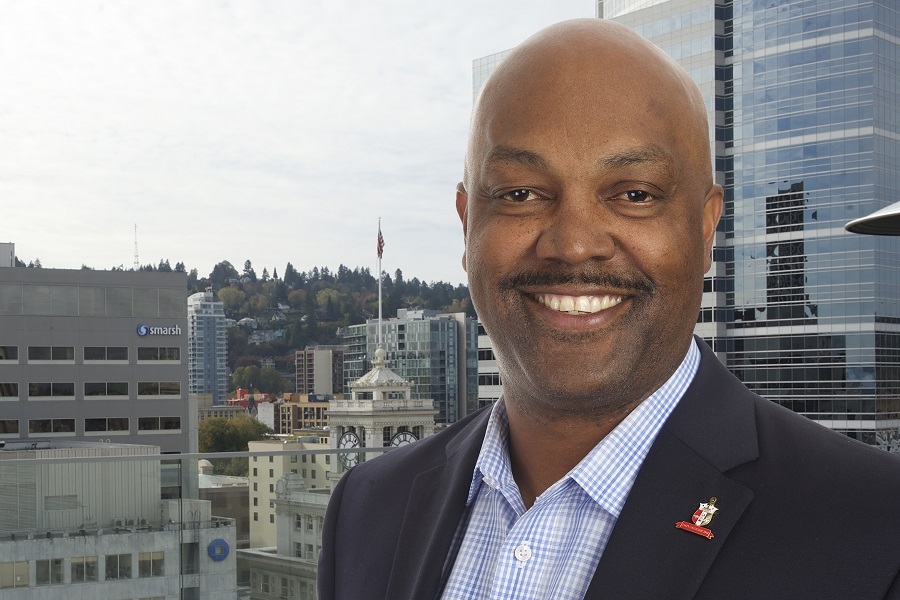The city’s tourism agency sets out a plan to salvage the hospitality sector.
When James Jessie joined Travel Portland in 2017, it was an exciting time for the tourism sector.
Hotel chains from across the world flocked to Portland for its culture, fine dining and access to the outdoors. In 2019 travel to Portland generated $5.6 billion in revenue and supported 36,930 jobs. In July of the same year, ground broke on a $600 million Ritz Carlton Hotel in the heart of downtown.
But the world has changed since then. In August Jessie was promoted to the position of chief sales officer. In addition to navigating one of the worst pandemics in modern history, the city faces routine negative coverage from certain lawmakers and media outlets over the Black Lives Matter protests.
If that was not enough, the city has also had to contend with smoke from the Bear fire this summer along with evacuees fleeing the blaze.
Jessie was genuinely upbeat as he discussed Portland’s prospects. There is no way to tell when, or if, tourism will return to 2019 levels. But for now Travel Portland is focused on short-term opportunities.
By marketing pandemic safety and disaster preparedness of the city, and pursuing media opportunities that showcase Portland’s progressive values, Travel Portland seeks to ensure the city stays as competitive as possible in an upended tourism industry.
In the initial confusion caused by the COVID-19 outbreak, Travel Portland did what it could. As businesses that relied on tourism came to a halt, the organization published a database of resources for business owners on its website. But federal sources of assistance like the Paycheck Protection Program were a temporary fix. Without a stream of income, every Portland hospitality business and cultural institution was at risk.
One of the first steps in Travel Portland’s short-term strategy was attaining Global Biorisk Advisory Council (GBAC) certification for the Oregon Convention Center and the newly constructed convention hotel run by Hyatt Regency. Travel Portland is focused on getting certification for the entire city, which includes Portland’s hotels.
The international accreditation means sports teams which can not hold meets at their normal facilities can come to Portland. The convention center was able to host multiple tournaments under one roof, a strategy Jessie describes as a “bubble scenario.”
In the world of professional sports, the city now serves as home base to the relocated Vancouver Whitecaps soccer team, which has its own locker room at Providence Park stadium. Due to the ability to play outside, amateur and professional sports have been more resilient than other industries when it comes to dealing with shutdowns.
Portland’s Black Lives Matter protests continue to generate backlash from media outlets and lawmakers across the country. This includes President Donald Trump, who described the city as having been “burning for decades.”
But Jessie says there is opportunity in publicity. Some of Portland’s industry partners, including the National Collegiate Athletic Association (NCAA) have released strong inclusion statements in support of racial justice.
This year Portland placed a bid to host the NCAA Women’s Final Four basketball tournament. During the pitch process, the ability to market Portland as a city valuing diversity was fruitful. Portland is viewed as a frontrunner for the games along with Phoenix, Arizona.
“To industry partners supportive of the movement, the media attention has served to highlight the progressive and inclusive nature of the city,” says Jessie, who describes the battle for control over Portland’s reputation as a “daily fight.”
“Portland has always led in the areas of diversity, equity and inclusion. While we condemn any and all violence that has come along with the protests, social activism cements Portland’s reputation. We are a progressive community of independent thinkers who aren’t afraid to be heard.”
Top Chef, a cooking TV show, has also taken notice of Portland’s national spotlight. The TV contest announced Portland as the location for its 2021 season. The popular show will help showcase Portland’s culinary scene and the rest of Oregon to potential visitors. Production will result in an estimated 7,000 room nights and employ 41 local crew members.
Another area Jessie touts is Portland’s disaster preparedness. States along the West Coast face increasing risk of wildfire. But as global temperatures rise, every destination will have to contend with some form of natural disaster. Locations able to show swift and efficient reactions will generate positive national media coverage, while a botched response will do the opposite.
“It’s a long road, but we’re ready for it,” says Jessie. “It is the focus on our values that is going to fend off attacks on our Portland brand.”
To subscribe to Oregon Business, click here.





